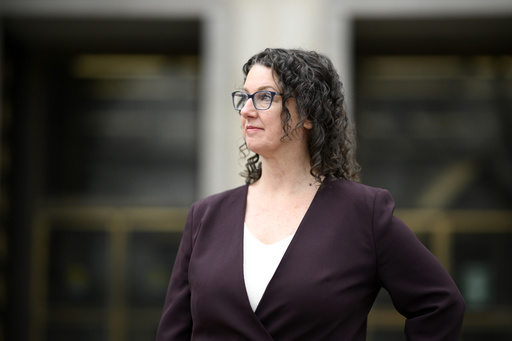
NEW YORK — A newly formed coalition of nonprofit organizations has quickly mobilized to contest a sweeping directive issued by the Trump administration that temporarily halts extensive federal funding. As a result of their efforts, they have managed to block the order for the time being.
This initiative marks the beginning of what nonprofits anticipate will be a surge of legal actions, with civil litigation being a crucial instrument for advocacy groups to push back against the policies of President Donald Trump. Skye Perryman, head of Democracy Forward, which spearheaded the coalition’s challenge against the funding freeze, stated, “We will see a wave of legal actions aimed at halting unlawful activities.” A judge recently ruled that their lawsuit would proceed, extending a temporary restraining order as part of the broader strategy against this order.
Over a dozen lawsuits have been filed against the Trump administration from various nonprofit groups, including several Quaker organizations, the consumer advocacy group Public Citizen, and the New Hampshire Indonesian Community Support. While many anticipated changes in policies under the new administration, few expected such a drastic suspension of foreign aid and federal funding, which has been viewed by the nonprofit sector as a severe threat to their existence. Organizations have adopted a mix of strategies in response, ranging from low-profile approaches to community outreach initiatives, urging supporters to contact their congressional representatives.
Diane Yentel, president and CEO of the National Council of Nonprofits, quickly mobilized her resources upon learning of the federal directive on January 27. The memo from the Office of Management and Budget mandated a pause on “all activities related to obligation or disbursement of all Federal financial assistance,” prompting her to post on LinkedIn about the potential hazards posed to nonprofits and the populations they serve. “We cannot allow this situation to unfold unchallenged,” she expressed.
In a matter of hours, Yentel collaborated with Democracy Forward and other organizations to devise a legal response. “We worked through the night to prepare so that by 9 a.m. we could inform the district court that we were challenging this order and request an emergency hearing for the day,” Yentel recounted in an interview.
Tom Watson, president and founder of CauseWired, applauded the collective response organized by the National Council of Nonprofits alongside other influential groups such as the American Public Health Association and Main Street Alliance. “This is more than a fleeting challenge; it resembles a substantial tidal wave that could endanger the entire ecosystem of nonprofits,” he remarked.
Nonprofit leaders are drawing parallels to experiences faced during the earlier Trump presidency and the challenges introduced by the COVID-19 pandemic, recognizing them as periods of upheaval. However, the current federal funding freeze is regarded as an unprecedented situation. Ann Oliva, CEO of the National Alliance to End Homelessness, noted that access to various funding platforms for nonprofits was abruptly stalled even ahead of the administration’s implementation timeline, leading to considerable uncertainty and anxiety among organizations reliant on those funds.
To combat the impending freeze, Oliva’s organization encouraged individuals to contact their congressional representatives, with at least 10,000 people using their online form to voice their concerns last week. Grace Bonilla, president of United Way of New York City, which relies on state and local funding to assist food pantries in New York City, indicated that local organizations are already facing challenges not only from funding uncertainty but also due to other administrative policies, including intensified immigration enforcement.
“It’s week three of the new administration,” Bonilla reflected, noting ongoing discussions with fellow nonprofit leaders, funders, and businesses about appropriate responses. Currently, many leaders are waiting to see what transpires next, as they remain acutely aware of the potential impact on their operations and the communities they serve. “People understand the ramifications, not just for financial stability but also for the lives that could be affected by these potential changes,” she said.
Bonilla also emphasized the difficulties for nonprofit leaders and other stakeholders in declaring definitive positions, given the unpredictability of future developments. “Our elected officials should demonstrate greater courage in addressing these matters,” she concluded.

